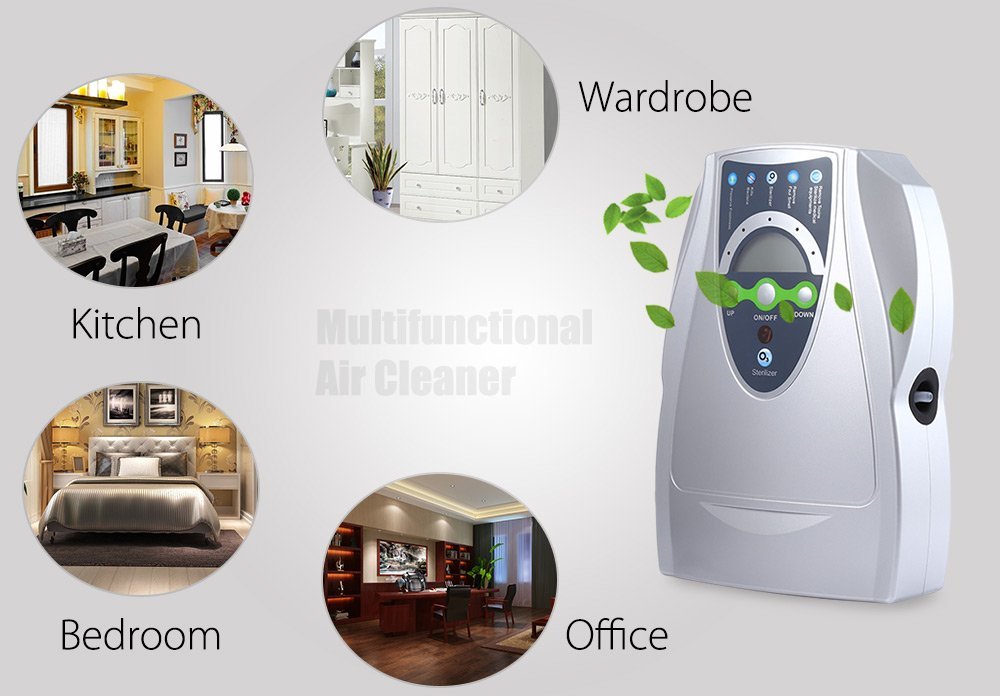An air purifier is a portable device that purifies the air in a space to improve indoor air hygiene.
These devices are often marketed as useful to people living with asthma and allergy sufferers and reduce or eliminate second-hand smoke.
This is true for those who have asthma and those with allergies, such as pollen, mold, or dust mites. These devices work by drawing in the airborne particles and filtering them through a series of filters made of porous material.
There are different methods of filtration that will be discussed later on in this article.
Still, the main varieties will be able to filter microscopic particulates no less than 0.3 microns. To put that in perspective, an average human hair is 80 microns thick!
Air purifiers have become common in offices and other public buildings, homes, and apartments.
They have become so popular that there are now some models on the market designed to do their job even in small rooms, including in closets and attics.
Air purifiers are most commonly designed to be used by people who have respiratory conditions such as asthma or allergies, and they are available for both residential and commercial use.
Many people buy these devices because they are designed to clean the air inside the home or office.
Most of these cleaners contain activated carbon, making them highly effective at removing particles from the air and other allergens and irritants present in the environment.

Air purifiers are available in a variety of sizes and shapes and can be placed almost anywhere. The best models will be able to be mounted on a wall or the floor.
Some models will have an easy to use remote control, and some will require a separate outlet for the power source.
The type you choose should depend on your needs and the amount of time you plan to clean the air in your home or office.
The only real disadvantage of buying an air cleaner for your home or office is that it will be a lot more expensive than purchasing a machine that does not filter the air.
However, a portable air purifier is often more affordable than some larger, stationary models, with the main downside being the amount of air it can purify.
Musty smells are often caused by mold and bacteria floating around in the air, so depending on which type of machine you decide on, it should, in theory, be able to remove these musty smells.
If you live in a humid environment, chances are far higher than the mold will accumulate in and around your home.
Therefore a high-quality model for odor elimination will suck in the musty air, neutralize the spores and release clean, fresh air. It is for this very reason that air purifiers are so popular with allergy sufferers.
If you have pets or children, then you know how much they can contribute to the odor that an air purifier can help to eliminate. They often get dirty after playing in the yard or out on walks.
Ther are even specialized purifiers that cater to pet owners that contain several layers of filters that not only catch mold spores but other contaminants that animals often bring inside the house.
You can buy an air purifier that has a system that removes all the dirt and dust that your pets leave behind. The air purifier will help to clean out the air that you and your family and pets breathe.
These filters will also help remove any excess food particles that the dogs or cats eat.
Not every air purifier is designed to get rid of mold. All of them are good at getting rid of smoke and dust in an enclosed environment, which is true. However, mold, by definition, is an airborne fungus.
However, When you are cleaning out the air, you can sometimes use a humidifier and a dehumidifier to help with the home’s smell.
By combining an air purifier with a dehumidifier, you will find that musty smells will not only disappear over time, but you will also prevent future moldy odors in the future.
This is true for both hot and cold climates, but especially hot and humid environments.
There are different types of air purifiers available in the market for you to choose from.
These cleaners can come as stand-alone units, small portable units, large units that can also be attached to an HVAC system, and even small mobile units that can even go on top of a cupboard.
All types of air purifiers function in different ways, and it is up to you as to what kind of air purifier you would want to get.
You should also note that you don’t need a filter in every room, just the places you spend a lot of time in, such as the bedroom and kitchen.
Standing for High-Efficiency Particulate Air. It is a regulated standard and must stop 99.97% of particulates 0.3 microns and larger.
Carbon has been well documented to absorb particulate matter due to its extensive surface area.
This tech is used alongside other purifiers and is predominantly used to kill bacteria that becomes trapped. This helps to stop the severe growth of microorganisms. It is essentially an extra step.
This type gives an oxygen molecule an extra electron, thereby making it attract particulates int eh air. It works like a large particulate magnet.
This purifier creates ozone or O3 to work. This type is not recommended for people with asthma, but people without severe allergies, just looking for a cleaner home, could be an exciting option.
Air filters work by sucking up the dust particles and other harmful pollutants that enter the house through the air.
This works by ensuring that your atmosphere is clean and fresh so you can live a healthy life.
Air filters can also eliminate dust mites and other airborne allergens. Some air purifiers have filters that use ionization technology.